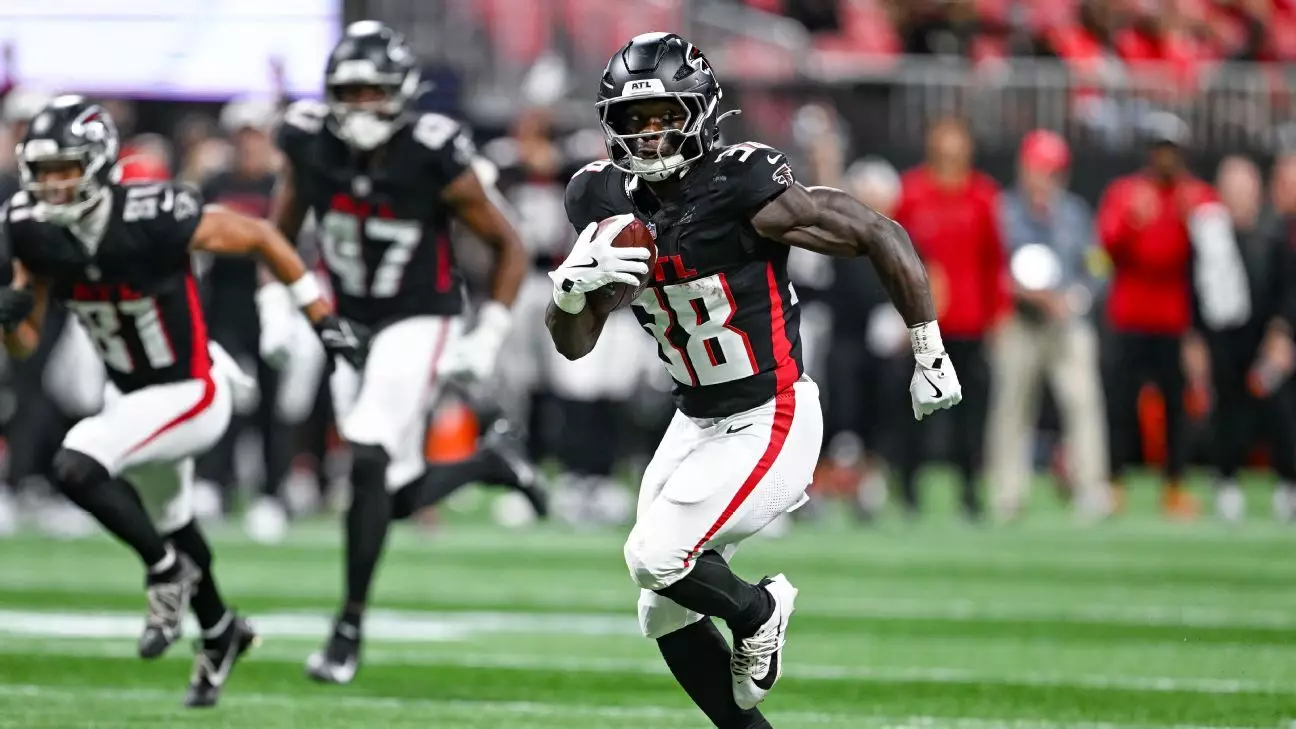Football, often revered for its combination of grit, agility, and strategic finesse, also bears a darker side—one where the game’s inherent danger can leave lasting scars. The recent incident involving Atlanta Falcons rookie Nathan Carter and Lions’ player Morice Norris underscores how swiftly tragedy can strike on the gridiron, transforming it from a game of athletic brilliance to a test of mental fortitude. Norris’s injury, which led to a lengthy hospital stay and a concussion protocol, served as a stark reminder of football’s unpredictable nature. Yet, amid this chaos, a story of resilience begins to emerge—one driven by hope, faith, and unwavering determination.
Carter’s reaction to the injury was not just humane but deeply revealing of his character. Instead of withdrawing or becoming tentative on the field, he chose to channel his focus into playing with renewed confidence. His subsequent performance—rushing for 63 yards and a touchdown—was not merely a statistic; it was a testament to overcoming fear and trauma. Assessing this from a critical perspective arrives at a profound realization: success in football isn’t solely about physical prowess but also about mental resilience. Carter exemplifies this by pushing past the emotional weight of the injury, which could have easily derailed his confidence, preferring instead to see a bigger picture rooted in faith and camaraderie.
From Unheralded Underdog to Emerging Star
What makes Carter’s story more compelling is his unlikely rise within the competitive landscape of the Falcons. An undrafted free agent from Michigan State with impressive measurable attributes—running a 4.4 40-yard dash, a 40-inch vertical leap, and an excellent broad jump—Carter’s physical tools suggest a player of high potential. Yet, behind the flashy stats lies the reality that undrafted players often face an uphill battle to secure their spot on NFL rosters. His performance in camp, especially when contrasted with the established backs like Bijan Robinson and Tyler Allgeier, signals that he’s more than just a fringe roster candidate; he’s a player pushing for recognition and respect.
Critically examining this trajectory, it’s clear that Carter embodies the grit required of NFL aspirants who come from the margins of the league. His surgical measurables provide him a foothold, but his relentless work ethic and mental toughness serve as differentiators. His coaches’ praise for his fierce running style and resilience highlight a player who refuses to be defined by his draft status or initial setbacks. The fact that he scored his touchdown with the confidence and joy of teammates celebrating around him indicates a player who has internalized the importance of leadership, faith, and perseverance as core elements of his journey.
The Power of Faith and Inner Strength in High-Pressure Sports
In a sport where the physical and mental tolls are relentless, Carter’s spiritual grounding emerges as a defining feature of his character. His statement about performing “for the Lord” reflects a perspective that elevates sport beyond mere competition. It suggests that his motivation stems from deeper, intangible principles—faith, purpose, and resilience—allowing him to stay grounded amidst adversity. This attitude not only gives him peace but also positions him as a role model within the team, embodying a balanced approach to the high-stakes environment of professional football.
However, this reliance on faith and inner strength is not without critique. It can be argued that such an outlook might sometimes mask vulnerabilities that football-players often face—stress, injury fears, and mental health challenges. Yet, in Carter’s case, his openness about these beliefs offers an empowering narrative that champions holistic resilience. His interaction with Norris post-injury, checking on him via social media and describing Norris as “high spirits,” further emphasizes his compassionate side. This humanizes a player often depicted through the lens of statistics and plays, reminding us that emotional intelligence and empathy are vital components of athletic success.
Breaking Barriers and Redefining Potential
Carter’s story is a rallying cry for underdogs and late bloomers across the sport. In a league where established names dominate headlines, his emergence demonstrates that perseverance, physical talent, and mental toughness can forge new pathways. His impressive athletic feats—both at his pro day and on the field—are physical manifestations of this potential. Yet, what stands out more is his mindset: a fierce competitor who refuses to be defined by the labels others impose upon him.
Critically, Carter’s journey also illustrates the importance of opportunity and resilience. Being on the fringe of the roster, battling injuries, and navigating a highly competitive environment demands mental agility and unwavering focus. His humility, coupled with a relentless drive, signals a player who understands that grace under pressure often separates the good from the great. His teammates’ reactions—the celebration after his touchdown—are more than camaraderie; they represent a collective acknowledgment of his hard-earned progress and belief in his ability to contribute meaningfully.
This is a story not just about a breakout game but about the broader narrative of perseverance and hope in the face of adversity. As NFL teams continue to look for talent beyond the lottery draft picks, Carter symbolizes the potential hidden in perseverance and faith-based resilience. His rise challenges conventional notions of success and reminds us that often, the most inspiring stories are those written by the unwavering spirit of individuals who refuse to give up—their journey just beginning.


Leave a Reply